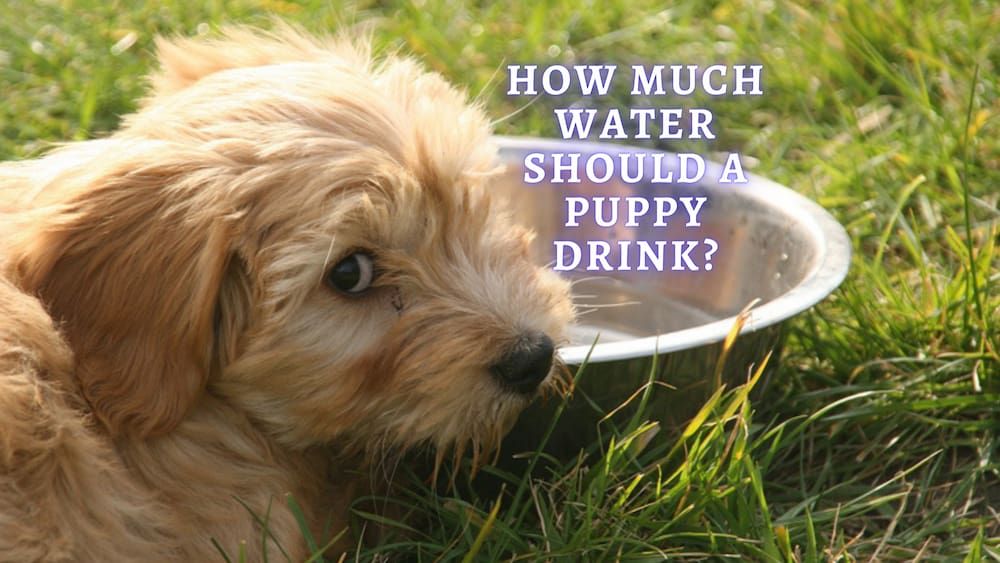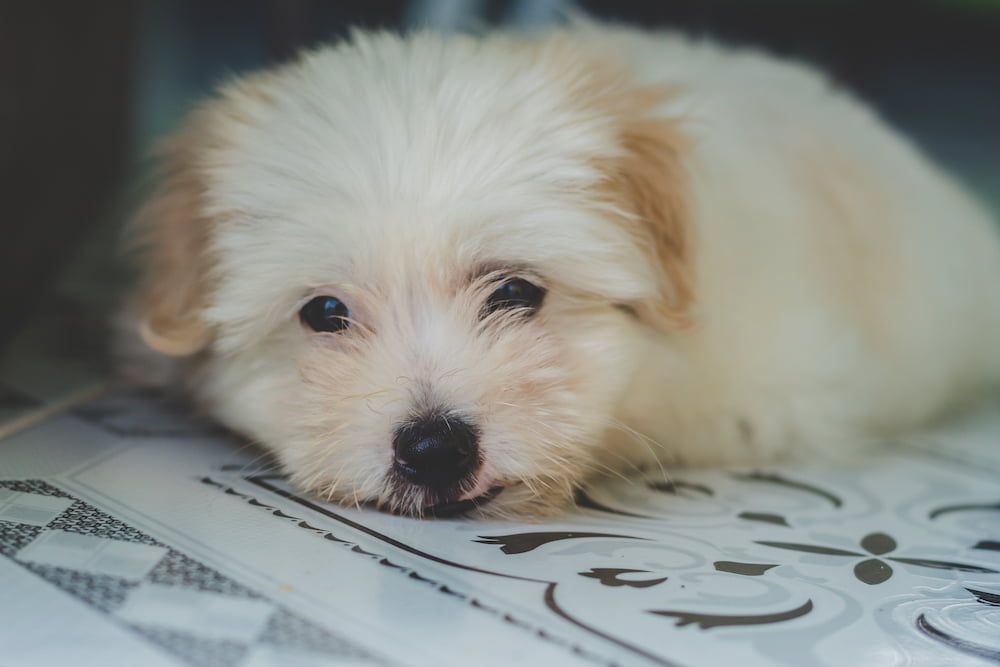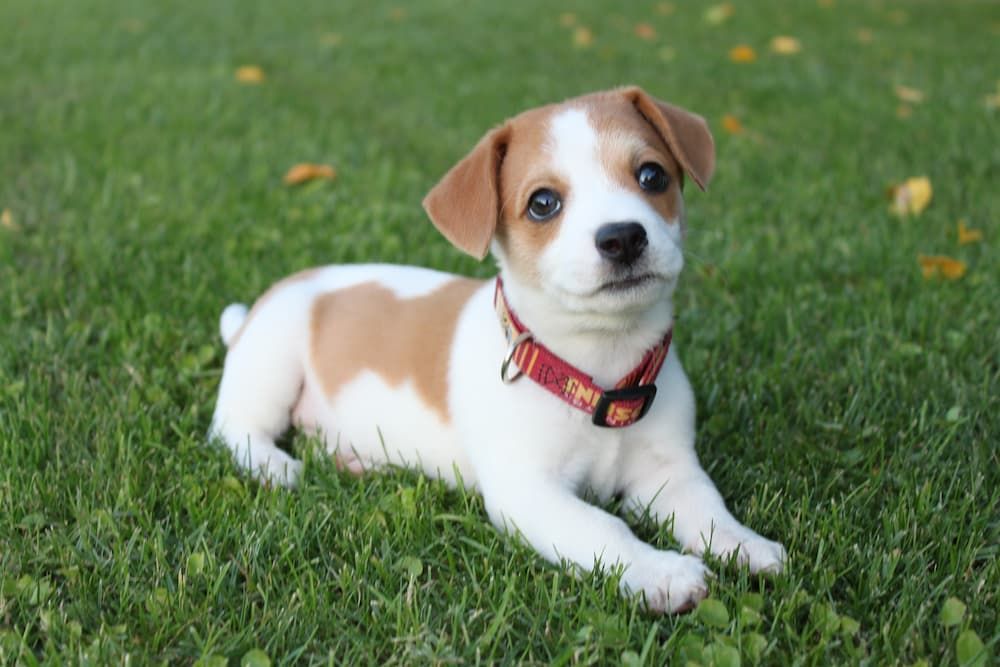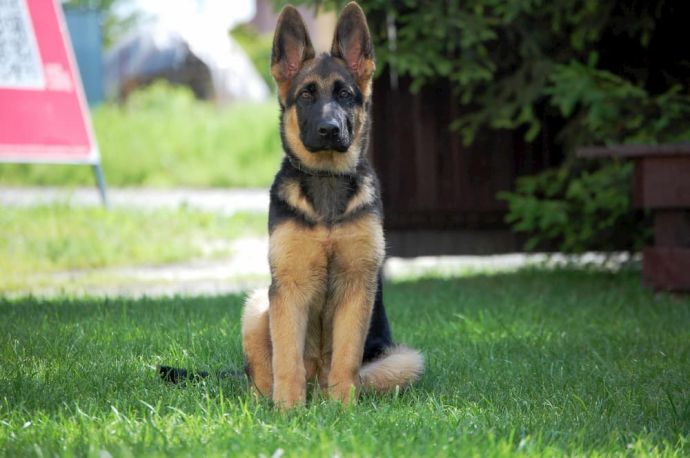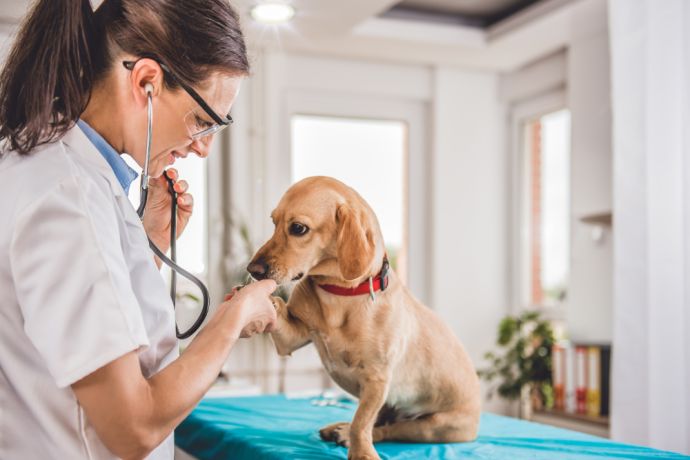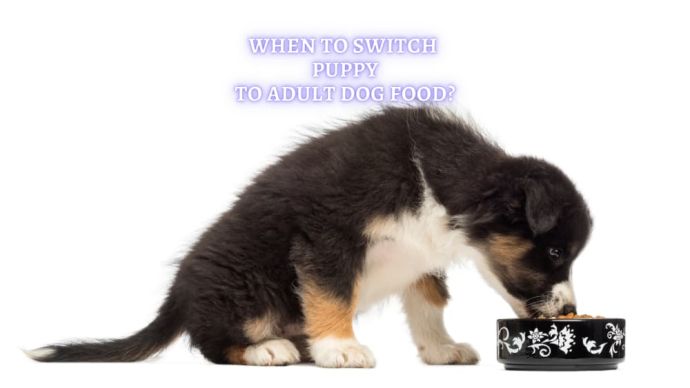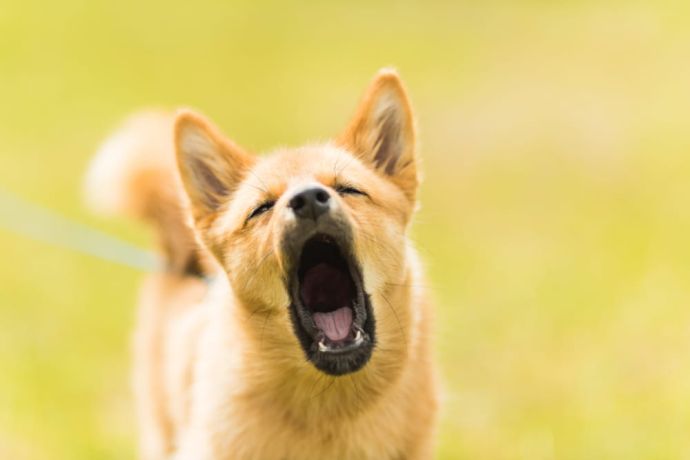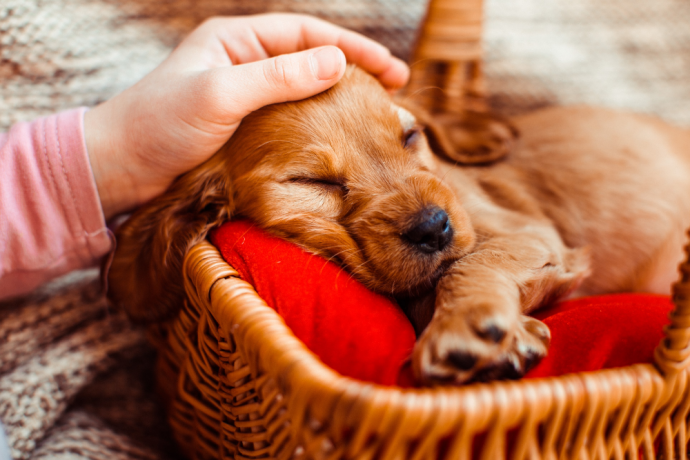How Much Water Should A Puppy Drink? Vet Advice On Puppies Daily Water Intake
Written by:
Author: Dr. Linda Simon
Dr. Linda Simon is a veterinary surgeon working with seven years of experience. She is a fellow of the British Veterinary Association and specializing in animal medicine. Also, she has been the Woman magazine resident vet for the past two years and writes a regular column for them, focusing on pets and their health.
View all 30 articlesLearn about our editorial process and veterinary review board.
Viewed: 373
Updated on: 10/20/2021
Very young pups will not need any water and get all of their nutritional and liquid needs from their mother’s milk.[1] However, once we start to wean them onto solid food, it is time to introduce fresh, cool water. For most, this is at about 3 to 4 weeks old.
Initially, puppy parents should ensure their puppy always has access to a clean water bowl. It should not be too deep and should be easily accessible. Opt for one that cannot be easily knocked over. Your puppy’s water intake will increase as they become more active. You’ll also find it is affected by things like your dog’s activity level and whether or not it is a hot day outside.
Pet parents should take heed of their puppy’s water consumption as too much or too little intake could indicate a medical issue. While some sources advise offering water on a schedule, this isn’t needed for the typical healthy pup, who is capable of controlling their own water intake.
READ MORE: When to Switch Puppy to Adult Dog Food?
What is the difference between puppy and adult dog water needs?
While adults drink roughly an ounce per pound of bodyweight of water, puppies actually need more water than this. Generally, puppies are a lot more active than their older peers and will sweat more and burn more calories throughout their day.
It is important to remember that wet puppy food contains a high concentration of water. In fact, many wet foods are 80% moisture. Young puppies will get much of their needed water through their food.
When potty training your puppy, you may want to try and minimize potty breaks at night if you’re dealing with frequent accidents. Limiting water intake overnight is a sensible suggestion. As pups should be mainly sleeping at this time, this shouldn’t cause much of an issue. However, if your puppy is unwell, their water intake should never be limited. When it comes to adult dogs, they are well able to self-regulate and should always have access to water.
What are the signs of dehydration?
Dehydration isn’t uncommon in young pups as they cannot regulate their hydration levels and are more prone to vomiting and diarrhea. Signs can include:
- Dry gums. When you gently rub your finger along the surface of the gum it should feel wet to the touch, just like ours.
- Lethargy. While puppies naturally sleep a lot, they should be active and playful when they are awake. If they are sleepy in between naps, this is a red flag.
- A prolonged skin tent (a loss of elasticity in their skin). As a general rule, pinched skin should ping back to place within a second or two.
- Reluctance to eat and drink. Puppies need to consume food and water regularly. For example, a ten week old puppy will usually eat four times a day and will drink many small drinks of water throughout the day. They should be keen to eat any training treats on offer too!
- Dry nose. Most owners know that a dog should have a ‘wet nose’. And while a dry nose doesn’t always indicate dehydration (especially in a senior dog), young puppies shouldn’t have dry noses.
- Sunken eyes. When it is at the stage that a puppy’s eyes are sunken, this indicates severe dehydration. This will typically happen when a pup is over 10% dehydrated.
Signs of dehydration can seem to come on very quickly, especially in only a few weeks old. We must try to correct any dehydration promptly by offering plenty of water and wet food. Owners can also provide flavored ‘broth’ water and ice cubes or dog-safe ice lollies. Ice cubes and other treats are also a nice way to provide some environmental enrichment for your little furry friend.
If there is any vomiting or diarrhea, this needs to be controlled. For many, veterinary care will be needed. Those who are refusing to eat and drink may require subcutaneous or intravenous fluids. Hospitalization may be needed in those with significant dehydration. While it may seem daunting to leave your little bundle of fur in a hospital setting, this is the best place for them if they’re unwell.
Can a puppy be overhydrated?
Overhydration is a rare complication that can occur, for example, when a puppy is on an intravenous fluid drip, and the wrong rate is given. It may also happen if your dog drinks excessively; for example, if they are fetching a ball from a paddling pool and continuously taking in a large amount of water. A healthy puppy drinking too much water from their own water bowl isn’t really an issue that we see in practice.
Signs of overhydration in a puppy can include vomiting, wobbly walking, drooling, and collapse. This is a true medical emergency and warrants an immediate visit to the vet. Symptoms can start very abruptly, and pups can even pass away if left untreated.
How much should puppies drink?
So how much water should a puppy drink? It isn’t easy to give an exact answer to this question. A dog’s water needs vary from individual to individual and change as they get older. They are dependent on a dog’s breed, body weight, activity levels, diet, and even vary if it is hot weather outside.
As a very rough guide, puppies will drink about 75 to 100mls of water per kg a day. This is more than typical adult dogs, as most dogs would drink closer to 50ml per kg a day. An observant owner will notice that water intake fluctuates day to day, and this is nothing to be concerned about.
The water bowl is just one of the many sources of water a puppy has. Some owners will call their local vet as they are worried their puppy rarely drinks from their bowl. If the puppy is otherwise well, there is almost never an issue. The puppy is likely taking in all the moisture it needs from its canned food and other sources.
Some pups have a preference for running water and may drink from taps or streams outside. While drinking from a house tap is not much of an issue, drinking from outdoor bodies of water should be discouraged as they can be a source of infection and parasites. Stagnant water can be particularly dangerous and we should not let our dogs drink from muddy puddles, which could make them quite unwell.
READ MORE: Vet Advice How to Raise a Puppy
Can a puppy drink too much water? What should I do?
Typically, even young puppies are very good at controlling their water intake and won’t tend to drink more than is needed. However, in rare circumstances, this can happen in healthy pups. We can see water toxicity in those who are playing in water (for example, swimming in the sea and playing fetch) or in those who drink to excess due to boredom.
Excessive drinking can be a sign of a health problem and needs to be investigated by a vet. Pay close attention if your puppy has suddenly started to drink more than before or is drinking noticeably more than its peers.
It will provide your vet with useful information if you can measure their daily intake. You can use a measuring jug to fill up your dog’s water bowls in the morning and then measure the amount left at the end of the day to determine the total fresh water intake.
A dog who is drinking too much will usually also be urinating in excess and perhaps be having accidents in the house. They may ask to go outside frequently and pass very large puddles of urine, that soak through puppy pads or are not contained within their borders. You may also notice that the urine is transparent rather than being yellow and does not have an especially strong odor.
What are the health issues that can cause excessive drinking?
Medical issues that cause an increase in thirst are more typically seen in adult dogs. However, some congenital and genetic issues can affect younger dogs.
Excessive thirst may indicate health problems such as:
- Bladder stones. Stones are more common in certain breeds including the Bulldog and Dalmatian. They may be related to a dog’s diet, especially if an owner is providing supplements that contain excess minerals.
- Kidney Disease. A range of kidney diseases can be seen in the younger dog including renal aplasia and acute kidney failure secondary to toxin ingestion.
- Liver Disease. Signs of liver disease vary depending on what is going on and can include jaundice, nausea and a failure to thrive.
- A recent toxin ingestion (e.g. salt, chocolate, vitamin D [2] or certain human medications such as diuretics)
- Diabetes. Those with diabetes will experience excessive thirst, an increased appetite and weight loss.
- Cushing’s Disease. This hormonal disorder leads to a range of symptoms including panting, a pot belly, increased thirst and chronic skin disease. For most, their disease can be well managed with daily medicine.
- Gastrointestinal Disease.[3] The obligatory water loss that occurs with signs such as vomiting and diarrhoea can lead to a big increase in thirst.
- A urinary tract infection. These aren’t uncommon in younger dogs and can be linked to congenital defects such as hypospadias.[4]
If you think your puppy is drinking too much, bring them along for a health check. The veterinarian will check them over and may well request that a blood and urine test are performed. Treatment will depend on what is found and may include antibiotics, anti-inflammatories, and supportive care.
Don’t be tempted to limit your puppy’s water intake, as this may do more harm than good. While you may think that preventing them from drinking too much is sensible, their body needs that water. In fact, limiting the water could quickly lead to significant dehydration and serious health complications.
FAQ
Do puppies drink a lot of water?
Most puppies do drink more water than adults, yes. However, this should not be an excessive amount. When very small and still nursing, young puppies get most of their liquid from their mother’s milk. A puppy needs water for normal bodily functions and to maintain their health. Excessive thirst could be a sign that there is something amiss and should be discussed with your veterinarian.
Should puppies have free water access?
Absolutely, yes. It is an important part of puppy ownership; ensuring they are always able to have a fresh drink of water. The only exception may be if you limit water intake for a few hours overnight in older puppies who are taking time to toilet train.
How long after drinking water do puppies pee?
This varies and isn’t easy to predict. However, it is sensible to bring your young puppy outside to the toilet after every drink, meal, and nap. It isn’t uncommon for a puppy to urinate immediately after drinking, especially when very young.
How much water should a dog drink in 24 hours?
An adult dog drinks about 50 to 60mls/kg (1,7 to 2 fl oz per 2.2 lbs) of water per day. For a 15kg (33 pounds) Spaniel, this works out at about 750mls (25,4 fl oz) of water in a day. Puppies may drink somewhat more than this. Remember, a lot of the water intake will come from solid foods such as canned foods, treats, and other snacks.
Don’t worry if your dog drinks a different amount of water on different days. This is normal and to be expected.
- Oftedal, Olav T. “Lactation in the Dog: Milk Composition and Intake by Puppies. The Journal of Nutrition.” Oxford Academic, academic.oup.com/jn/article-abstract/114/5/803/4755793.
- Fan, T. M., et al. “Calcipotriol Toxicity in a Dog. Journal of Small Animal Practice.” Wiley Online Library, onlinelibrary.wiley.com/doi/abs/10.1111/j.1748-5827.1998.tb03712.x.
- Henderson, S. M., and C. M. Elwood. “A Potential Causal Association between Gastrointestinal Disease and Primary Polydipsia in Three Dogs. Journal of Small Animal Practice.” Wiley Online Library, onlinelibrary.wiley.com/doi/abs/10.1111/j.1748-5827.2003.tb00157.x.
- Fitzgerald, Scott. “Urethral Anomalies – Urinary System.” MSD Veterinary Manual, 8 Oct. 2021, msdvetmanual.com/urinary-system/congenital-and-inherited-anomalies-of-the-urinary-system/urethral-anomalies.
 Dog Veterinary Tips Why is my Dog throwing up: Causes and Preventing (Veterinary Advice)
Dog Veterinary Tips Why is my Dog throwing up: Causes and Preventing (Veterinary Advice) - 21800
- 5
 Dog Care My Dog Keeps Scratching His Mouth: Reasons Why Your Dog Scratching Face
Dog Care My Dog Keeps Scratching His Mouth: Reasons Why Your Dog Scratching Face - 17168
- 1
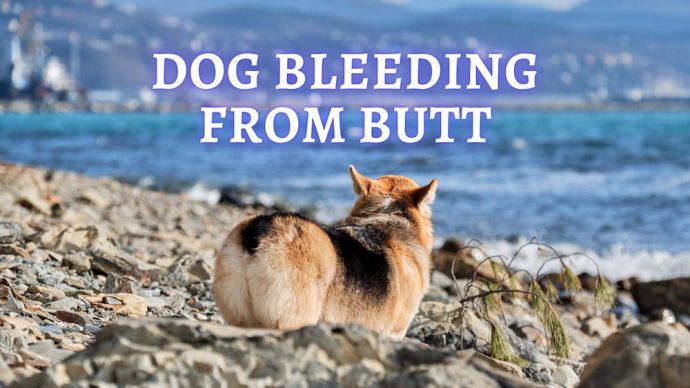 Dog Care Why Is My Dog Bleeding From Its Butt? Causes and treatment of rectal bleeding in the dog
Dog Care Why Is My Dog Bleeding From Its Butt? Causes and treatment of rectal bleeding in the dog - 15113
- 0









